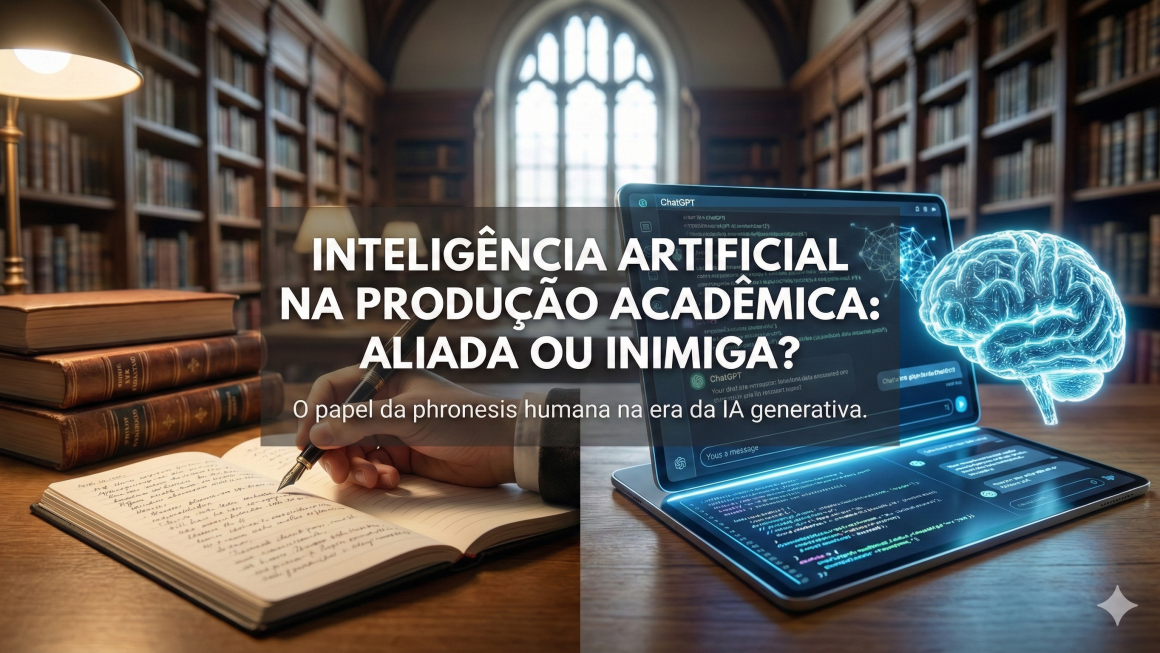Mauricio C. Serafim
When we think of public management, the image that often comes to mind is that of a universe governed by laws, processes, and complex bureaucracy. It is commonly believed that excellence lies in the strict application of rules. However, true effectiveness in public management may not rest in the unreflective fulfillment of a manual, but rather in a more human dimension: the character of the manager. This text explores some ideas drawn from studies on ethics and virtues that may change our view of what it really means to be a good public servant.
Traditional ethical approaches in public management generally focus on two paths: following rules and duties (deontology) or achieving the best outcome for the majority (utilitarianism). Yet, an alternative—the virtue approach—shifts the focus from the act to the agent. This perspective changes the fundamental question that guides a manager’s conduct.
The question moves from “What should I do?” to “Who should I be?”
This change is crucial because, instead of merely consulting a rulebook, the manager is called to actively cultivate character—a stable disposition or habit (hexis)—that enables them to act rightly and consistently. Such moral formation is especially vital in complex and high-pressure situations where rules are ambiguous or insufficient, and the right decision depends on the perception and integrity of the decision-maker.
This foundation of character is precisely what allows us to face the first great obstacle of public service: bureaucracy itself.
Bureaucracy was analyzed by Max Weber as the most efficient and impartial model of organization. Before diving into solutions to its dilemmas, it is crucial to understand the root of the problem. Bureaucracy was conceived as an impersonal and efficient institution. However, as sociologist Robert Merton warned, it suffers from a chronic dysfunction: goal displacement, wherein rules—created as means—become ends in themselves.
It is in this bureaucratic context that sociologist Guerreiro Ramos identified the behavioral syndrome. He made a crucial distinction between behavior—a mechanical, programmed reaction to stimuli such as rules and orders—and action, which is deliberate conduct based on reflection upon ethical ends.
The great danger of bureaucracy arises when the manager ceases to act consciously for the common good and merely behaves, following procedures without question or purpose.
Ramos’s proposed solution centers on the Parenthetical Man: an agent who develops the capacity to “place between parentheses” both internal and external circumstances (the environment) to evaluate them critically. Based on substantive rationality, he judges whether the application of a rule in a specific case truly serves justice and the public interest, thus reclaiming his moral agency.
But to bracket circumstances and act accordingly, the manager needs a specific virtue: the courage to resist.
Fortitude challenges the common notion of courage as purely proactive and reveals a subtler—and perhaps more important—dimension for the public manager. Fortitude has two distinct acts: to undertake (the proactive dimension of attacking evils) and, more importantly, to endure (to resist). The latter, considered the principal and most difficult act, consists in bearing adversity, undue pressures, and fatigue without discouragement or surrendering one’s principles.
Imagine a hypothetical case of a contract manager overseeing school meals. The supplier delivers low-quality products and wields great political influence. The mayor, an ally of the company’s owners, pressures the manager “not to create problems.” Colleagues advise him to “let it go” to avoid risking his position. True courage here does not lie in a public confrontation, but in sustaining integrity—documenting the failures and following due process despite personal and professional risk.
This view of courage as resilience is essential but incomplete. Fortitude is a virtue only when it serves justice and is guided by prudence. Without justice, courage becomes mere violence; without practical wisdom, it degenerates into blind recklessness. This leads us directly to the virtue that must guide all courageous action.
The word prudence has been reduced in common language to mere caution. In the context of virtues, its original meaning, phronēsis (practical wisdom), is far deeper and more essential. It is right reason in action, the master virtue (auriga virtutum) that guides the application of all other virtues at the right measure and at the right time.
This wisdom is not a mystical gift but a competence grounded in essential parts: memory—to learn from past mistakes; docility—to heed advice; and foresight—to anticipate the future consequences of a decision.
It is “the art of making the right decision. […] Only he who masters this art can be considered a morally mature and adult man” (Josef Pieper).
Such wisdom manifests itself in three practical acts: deliberating (analyzing reality), judging (weighing the correct means), and deciding (executing, acting firmly). Phronēsis enables the manager to navigate the “gray zone” between the rigidity of rules and the complexity of reality. In Weberian terms, it harmonizes instrumental rationality (the pursuit of efficiency) with value rationality (commitment to ethics), ensuring that the final decision truly serves the common good.
And today, this virtue faces its greatest test in the digital age.
The classical discussion on virtues encounters its most contemporary challenge in the implementation of Artificial Intelligence (AI) in the public sector. The central dilemma arises from the conflict between the “logic of AI”—typically utilitarian and efficiency-oriented—and the “logic of public service”—deontological and based on principles such as justice and equity. Risks such as algorithmic bias and the opacity of the “black box” pose direct threats to public values.
In Brazil, this is not a theoretical discussion. The Federal Court of Accounts already uses the AI system Alice to monitor contracts, and the judiciary employs systems such as Victor in the Supreme Federal Court to sort cases. Digital Phronēsis manifests when the manager asks: How can we ensure that Alice does not develop bias against companies from certain regions? What responsibility does a judge bear when over-relying on Victor’s automated sorting?
The virtuous response lies in cultivating Digital Phronēsis: the application of practical wisdom to technological contexts, enabling the manager to deliberate on how, when, and whether an AI system should be used to serve the public interest. The clearest manifestation of this virtue may be the “moral courage to halt, reverse, or dismantle an AI system that proves harmful,” even if it is efficient or politically favored.
Conclusion: Character as the Most Essential Managerial Capacity
Beyond technical competence and legal expertise, what truly defines excellence in public service is the character of the manager. The virtues of justice, fortitude, and practical wisdom are not abstract concepts but essential realities that empower the public agent to make right decisions, resist undue pressures, and navigate the complexity of the modern world. They ensure that the power of the state is exercised not only with efficiency but with integrity and humanity.
The ultimate goal is not maximum efficiency but the use of technology to enhance human flourishing (eudaimonia) and strengthen public trust.
In a world increasingly focused on optimizing systems and algorithms, are we dedicating the same energy to cultivating the character of those who serve the public?




